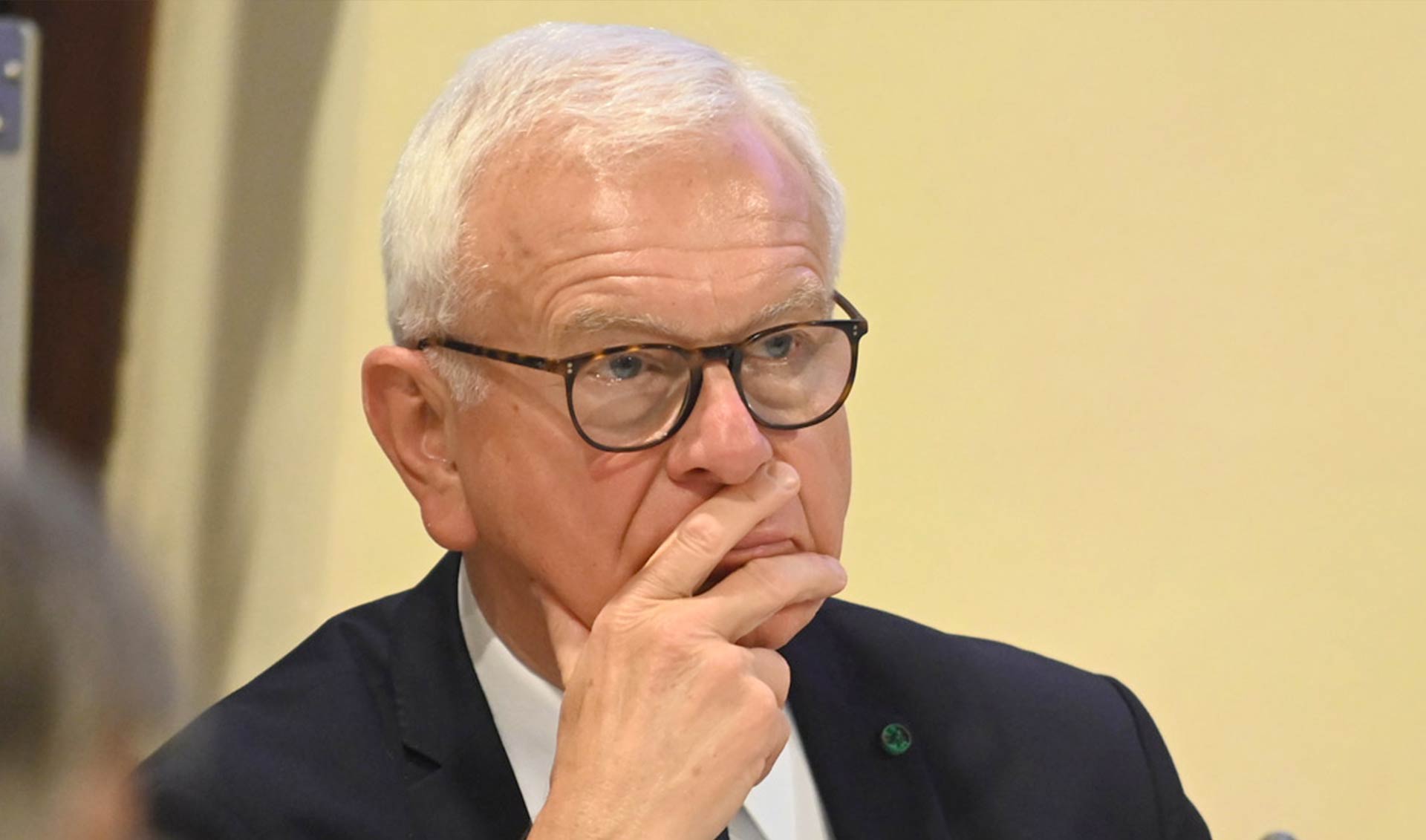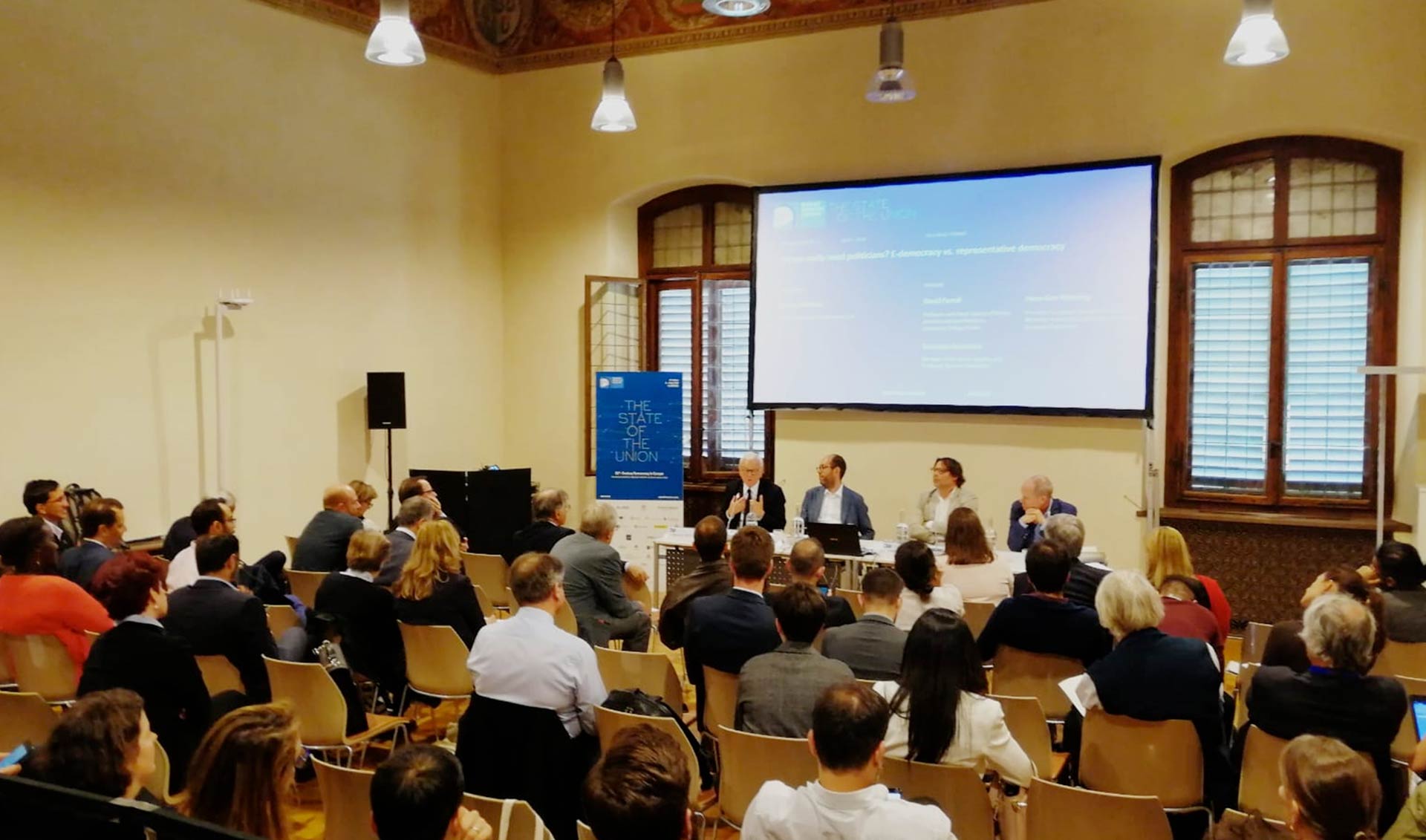“The role of universities is not limited to teaching and research – it also includes a third mission: to engage fully with society.” The opening lines of EUI President Renaud Dehousse’s welcome address to the 2019 State of the Union (SOU) high-level conference synthesized what the European University Institute’s (EUI) aims have been since its foundation in 1976, namely scientific excellence linked to societal commitment. Under the heading “21st-Century Democracy in Europe”, the SOU took place on the 2nd to the 4th of May at Villa Salviati and Palazzo Vecchio, Florence, such topics as rule of law, intergenerational inequalities, the Single Market, and disinformation in elections.
FMA President Hans-Gert Pöttering, former EP President Enrique Barón Crespo and Monica Baldi, who continuously espouses closer ties with the EUI, represented the Former Members Association at the SOU. The panel discussion “Do we really need politicians? E-democracy vs. representative democracy” on the second of May relied on the expertise of David Farrell, Professor at University College Dublin, Tommaso Nannicini, Member of the Italian Senate and Professor at Bocconi University, and President Pöttering. At the sight of eroding party systems and decreasing membership in political parties on the one hand, but increased use of direct participation tools and e-democracy on the other, the discussants reflected upon possible remedies to reconcile both the vertical and horizontal dimension of democracy.
Professor Nannicini initial remarks on old party systems, where those involved in the democratic process were aggregated much stronger by convictions, were backed by President Pöttering, who cited En Marche in France as a counterexample. Movements or platforms like the one who brought Emmanuel Macron to power pose greater difficulties to effective participation in the political process in comparison to traditional party structures, which, despite their rigidness, reward the competence of politicians.
Professor Farrell pointed out how our political systems have persistently proved themselves highly adaptive in the face of adversity. President Pöttering supported the latter’s view and added that each generation has its own challenges. Nevertheless, he rejected the argument that e-democracy could facilitate the “selection of politicians”. The technocratic notion suggested in that perspective would effectively undermine the normative side of politics, an indispensable trait of our democracies. Farrell then introduced recent findings in his home country, Ireland, where so-called Citizen Assemblies had been launched prior to important votes, such as the 2018 referendum on abortion. The outcome was very positive, as the Assembly channelled popular demands and contributed to a better-informed public on voting day. Prof Nannicini in turn praised the opportunities of e-government; in light of specialisation and growing bureaucracies, the digitalisation of democracy would be a promise of greater transparency. “Democracy is not everything”, warned President Pöttering in his final statement. Respect of direct democracy and, in the context of the European Union, the recognition of different referenda procedures depending on each member state, should never degenerate into the dictatorship of the majority. History has shown, over time, how the abuse of direct democracy instruments puts the protection of minorities in jeopardy. E-democracy, in sum, should be a complement and never a substitute of representative democracy and the liberal state.
FMA Secretariat



